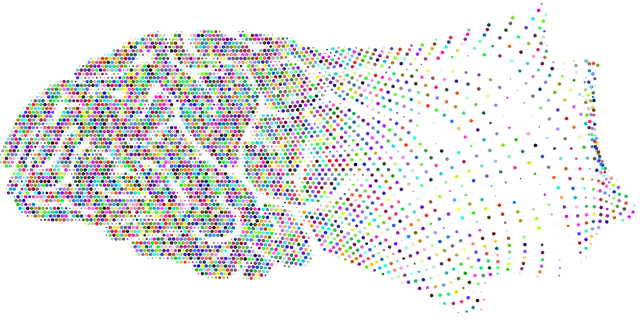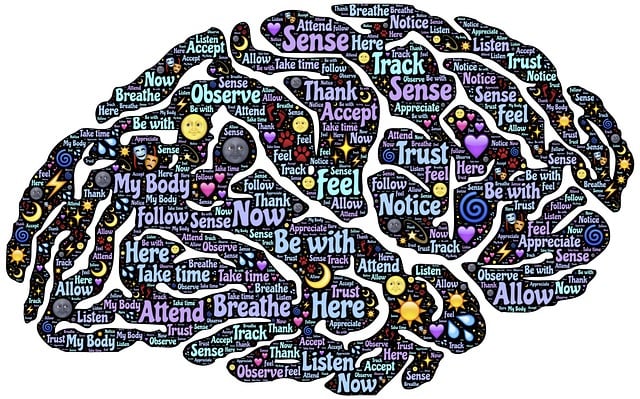In diverse healthcare settings, especially multicultural communities, offering superior French speaking therapy is vital for excellent patient care. Cultural competency involves adapting services to patients' backgrounds, reducing stress, preventing burnout, and improving health outcomes. French-speaking therapists bridge cultural gaps, providing emotional support and fostering trust with trauma patients from various backgrounds. Training programs, like Stress Management Workshops, equip healthcare providers with skills to offer culturally sensitive care through role-playing, self-reflection, and addressing unique mental health considerations of French-speaking communities.
Healthcare provider cultural competency training is an essential component of delivering equitable care. In a diverse society, understanding cultural nuances ensures patient-centered treatment. This article explores critical aspects of cultural competency, including the unique role of French-speaking therapists in culturally sensitive care. We discuss best practices for designing effective training programs and methods to measure their impact, emphasizing the value of superior French-speaking therapy skills.
- Understanding Cultural Competency in Healthcare: Why It Matters
- The Role of French-Speaking Therapists in Culturally Sensitive Care
- Designing Effective Training Programs for Cultural Competency
- Measuring and Evaluating the Impact of Cultural Competency Training
Understanding Cultural Competency in Healthcare: Why It Matters

In the realm of healthcare, cultural competency is more than a buzzword; it’s an essential tool for delivering superior patient care. It involves understanding and respecting diverse cultural backgrounds, beliefs, and practices among patients and their families. This is particularly critical in our increasingly multicultural societies where French-speaking therapy services can be a game-changer for many individuals seeking mental health support.
For healthcare providers, incorporating cultural competency into their practice means being able to adapt their communication, treatment approaches, and services to meet the unique needs of each patient. It’s about fostering an environment that alleviates stress and anxiety related to cultural differences, preventing burnout among healthcare workers, and ultimately improving health outcomes. Organizations like Stress Management Workshops offer valuable resources, including cultural competency training and burnout prevention strategies, to empower healthcare providers in their mission to deliver culturally sensitive care.
The Role of French-Speaking Therapists in Culturally Sensitive Care

In a healthcare landscape that increasingly mirrors global diversity, the role of French-speaking therapists is more vital than ever. These professionals bring not just linguistic proficiency but also a deep understanding of cultural nuances and barriers to care. By providing superior French-speaking therapy, they bridge the gap between patients from Francophone backgrounds and the medical system, fostering trust and ensuring culturally sensitive care. This is particularly crucial in trauma support services where emotional intelligence and empathy building strategies play a pivotal role in healing.
French-speaking therapists serve as cultural ambassadors, adept at navigating complex communication dynamics. Their ability to connect emotionally with patients, especially those who have experienced cultural or linguistic barriers, enhances the therapeutic process. Through tailored approaches that consider unique personal histories and community contexts, these therapists offer a safe space for vulnerable populations to express themselves freely. This specialized care not only improves treatment outcomes but also strengthens the overall healthcare experience for diverse communities.
Designing Effective Training Programs for Cultural Competency

Designing effective cultural competency training programs requires a nuanced approach that goes beyond surface-level awareness. It involves creating immersive experiences that foster genuine understanding and empathy, especially for healthcare providers interacting with diverse patient populations, including those from French-speaking backgrounds. One key strategy is incorporating self-awareness exercises that encourage reflection on personal biases and assumptions. These exercises can include scenario-based role-playing, where participants navigate complex cultural interactions, fostering a deeper appreciation for the nuances of different cultures.
Additionally, integrating Mental Health Awareness and Stress Management Workshops into the curriculum is vital. Many cultural groups have unique mental health considerations and coping mechanisms influenced by their historical and societal contexts. By offering these workshops, healthcare providers gain valuable insights into how to offer sensitive and culturally tailored support. For instance, a superior French-speaking therapy approach might involve recognizing and addressing specific stress factors within that community, ensuring more effective and compassionate patient care.
Measuring and Evaluating the Impact of Cultural Competency Training

Measuring the impact of cultural competency training is a crucial step to ensure its effectiveness and long-term benefits. This process involves evaluating various outcomes, from improved patient satisfaction and communication to enhanced staff retention and reduced burnout. One way to assess success is through quantitative methods, such as pre-and post-training surveys, which can track changes in knowledge, attitudes, and practices among healthcare providers. These surveys should cover key aspects like self-awareness exercises, cultural sensitivity, and confidence in interacting with diverse patients, including those from various linguistic backgrounds, such as French-speaking communities. For instance, a superior French speaking therapy program integrated into the training curriculum can significantly enhance care delivery for this specific demographic.
Additionally, qualitative feedback from participants through focus groups or interviews provides valuable insights into their experiences and perceived improvements. Observational assessments during role-play scenarios or community outreach program implementations can also offer tangible evidence of cultural competency skills in action. By combining these measurement techniques, healthcare organizations can gain a comprehensive understanding of the training’s impact, identify areas for improvement, and ultimately foster a more inclusive and effective healthcare environment that promotes burnout prevention and enhances self-awareness among staff members.














